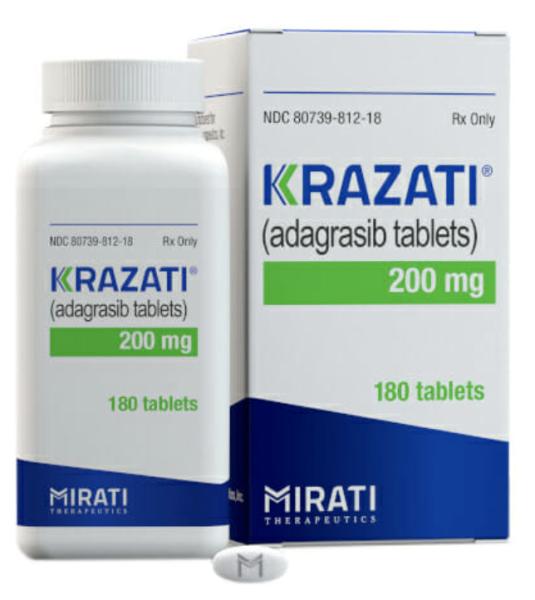Adagrasib Disease Interactions
There are 2 disease interactions with adagrasib.
Adagrasib (applies to adagrasib) pulmonary impairment
Moderate Potential Hazard, Moderate plausibility.
Adagrasib can cause interstitial lung disease (ILD)/pneumonitis which can be fatal. Patients should be monitored for new or worsening symptoms indicative of ILD/pneumonitis during treatment. Caution is advised in patients with pulmonary impairment.
References
- (2022) "Product Information. Krazati (adagrasib)." Mirati Therapeutics, Inc.
Adagrasib (applies to adagrasib) QT prolongation
Moderate Potential Hazard, Moderate plausibility. Applicable conditions: Long QT Syndrome
Adagrasib can cause QTc prolongation, which increases the risk of ventricular tachyarrhythmias or sudden death. Use should be avoided in patients with congenital long QT syndrome, in patients with concurrent QTc prolongation, and patients taking other medicines known to prolong the QTc interval. Monitor ECG and electrolytes prior to starting treatment and as indicated during therapy.
References
- (2022) "Product Information. Krazati (adagrasib)." Mirati Therapeutics, Inc.
Adagrasib drug interactions
There are 629 drug interactions with adagrasib.
Adagrasib alcohol/food interactions
There is 1 alcohol/food interaction with adagrasib.
More about adagrasib
- adagrasib consumer information
- Check interactions
- Compare alternatives
- Side effects
- Dosage information
- During pregnancy
- Drug class: miscellaneous antineoplastics
- En español
Related treatment guides
Drug Interaction Classification
| Highly clinically significant. Avoid combinations; the risk of the interaction outweighs the benefit. | |
| Moderately clinically significant. Usually avoid combinations; use it only under special circumstances. | |
| Minimally clinically significant. Minimize risk; assess risk and consider an alternative drug, take steps to circumvent the interaction risk and/or institute a monitoring plan. | |
| No interaction information available. |
Further information
Always consult your healthcare provider to ensure the information displayed on this page applies to your personal circumstances.


